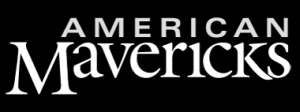As the current American Mavericks festival at the San Francisco Symphony demonstrates, there’s no one approach to creativity in the orchestral world. And Steven Winn—arts journalist and co-moderator of our live event in San Francisco this Saturday, March 17—is perfectly happy to take on all the contrasting and conflicting notions of creativity on display.
 E/C/D-sharp/C-sharp. From that taut little four-note cell, Aaron Copland spun out the material, at once dense and spacious, imploded and expansive, of his 1930 Piano Variations. Cunningly orchestrated by the composer 27 years later, the Orchestral Variations got the San Francisco Symphony’s 2012 American Mavericks festival opener off to a bracing start on March 8 at Davies Symphony Hall. It also got me to thinking about the marvel of creativity, which can feed on so little to generate so much, like some tiny, tremendously efficient micro-organism.
E/C/D-sharp/C-sharp. From that taut little four-note cell, Aaron Copland spun out the material, at once dense and spacious, imploded and expansive, of his 1930 Piano Variations. Cunningly orchestrated by the composer 27 years later, the Orchestral Variations got the San Francisco Symphony’s 2012 American Mavericks festival opener off to a bracing start on March 8 at Davies Symphony Hall. It also got me to thinking about the marvel of creativity, which can feed on so little to generate so much, like some tiny, tremendously efficient micro-organism.
An hour later, deep into Henry Brant’s 1994 orchestration of Charles Ives’ mighty 1920 Concord Sonata (A Concord Symphony), creativity had morphed into a giant daisy chain of inspiration and influence. Lit up by the American Transcendentalist writers who give the piece’s four movements their titles – Emerson, Hawthorne, The Alcotts, Thoreau – Ives pried open a collective musical trunk and grabbed everything from Beethoven to folk songs to church hymns for his purposes. Seventy-four year later, Brant popped open the trunk again, this time dusting off the amazing contraption Ives had fashioned and recoating it in fervent new colors.
The March 11 Mavericks chamber music concert brought another notion of creativity to mind. Watching and listening to the young members of the PARTCH ensemble perform the eponymous Harry Partch’s theatrical Five Pieces, I sensed myself as both witness to and participant in some deeply primal process. Using the fanciful instruments that Partch had invented – the cloud chamber bowls and hypobass and chromelodeon – the PARTCH acolytes were re-enacting what their artistic forefather had done a half century and more ago. They were re-inventing sound itself, its possibilities and pleasures, from the ground up. And we, the listeners, were re-awakened to the way we hear.
Oh yes, and then there was John Cage’s Song Books (1970), still buzzing and chattering and spinning away in my head from the second Mavericks orchestra program of the night before. What’s to say about Cage’s chance-driven congeries of music, noise, speech, song, action, ritual, light, settings and sober-minded nonsense? Perhaps that creativity may also be something teetering on the precipice of chaos, larger and more unknowable than any individual creator’s intrinsically limited mind.
I’m perfectly content to hold these contrasting and conflicting notions of creativity in mind at once. I’m also hoping to have my ideas jostled, challenged and enlarged on March 17, when the American Orchestra Forum presents Talking about Creativity, a free public conversation at Davies Hall. What Keats called negative capability, an openness to the paradox of “mysteries, uncertainties, doubts,” may well be the animating spirit for the afternoon.
—Steven Winn


